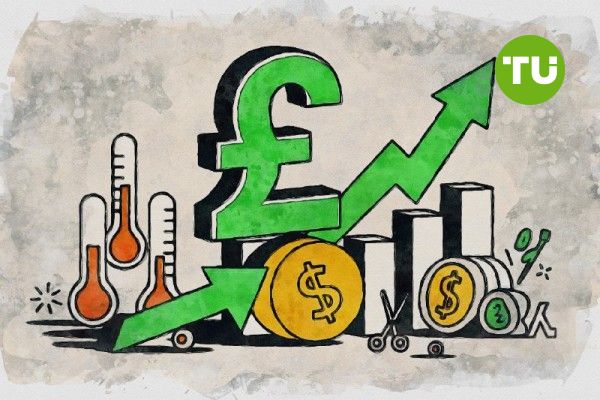Pound price retreats from 7-month high as Trump remarks lift U.S. dollar sentiment
 GBP/USD falls to 1.33 as Trump reassures markets and BoE cut speculation grows
GBP/USD falls to 1.33 as Trump reassures markets and BoE cut speculation grows
The British pound slipped below the $1.33 mark on Wednesday, retreating from a seven-month high after comments from U.S. President Donald Trump helped stabilize investor sentiment around the U.S. dollar. GBP/USD was last seen trading near 1.33, down from Tuesday’s peak of 1.3424, as short-term optimism around U.S. policy and trade prospects outweighed concerns about Federal Reserve independence.
President Trump moved to calm markets by stating he has no intention of firing Federal Reserve Chair Jerome Powell. His comments, delivered during a press conference, were aimed at dispelling fears of political interference in monetary policy. “I would like to see him be a little more active in terms of his idea to lower interest rates,” Trump said, but stressed, “No, I have no intention of firing him.” This helped restore some credibility to the dollar, which had been under pressure from concerns over central bank autonomy.
Adding to the supportive tone, U.S. Treasury Secretary Scott Bessent expressed optimism about resolving the trade dispute with China, calling the current trajectory “unsustainable.” Though no formal negotiations are underway, expectations of progress helped boost confidence in U.S. assets and the greenback.
GBP/USD price dynamics (March 2025 - April 2025) Source: TradingView.
BoE rate cut expectations and trade frictions weigh on GBP
In contrast, the British pound remains under pressure amid rising speculation that the Bank of England could ease rates as early as May. Weaker-than-expected UK inflation data for March, including a dip in services inflation to 4.7%, has reinforced market expectations of 86 basis points of easing this year. Traders are increasingly pricing in a fourth rate cut by December, with growing concerns that global trade tensions will weigh on UK growth.
Uncertainty surrounding the UK’s trade relationship with the U.S. is also acting as a headwind. Recent tariffs imposed by the Trump administration—10% on general goods and 25% on steel and foreign cars—have strained bilateral ties and raised concerns about the competitiveness of British exports in a protectionist environment.
As noted in earlier sessions, the pound’s ascent was driven more by dollar weakness than U.K. fundamentals. With BoE dovish bets rising and global trade risks still active, GBP/USD remains sensitive to external developments.













































































































































